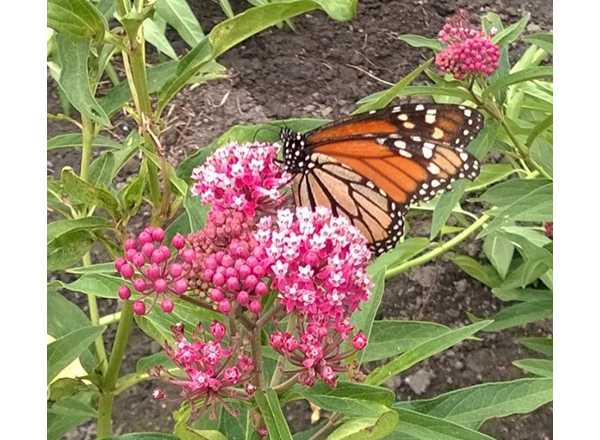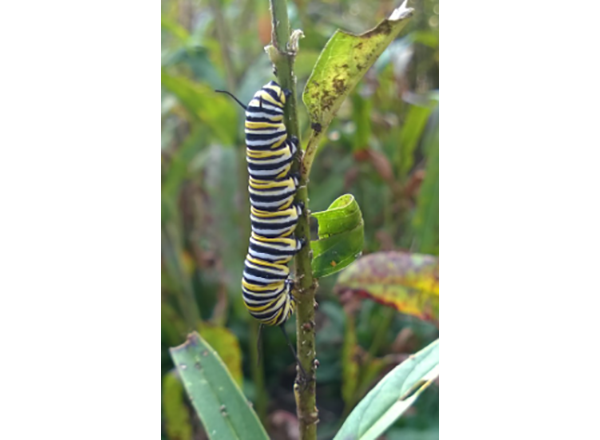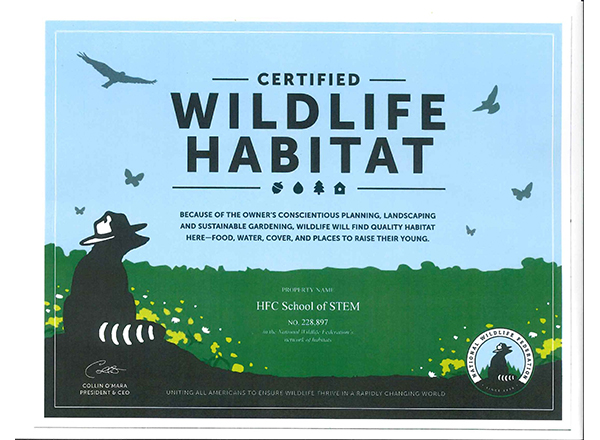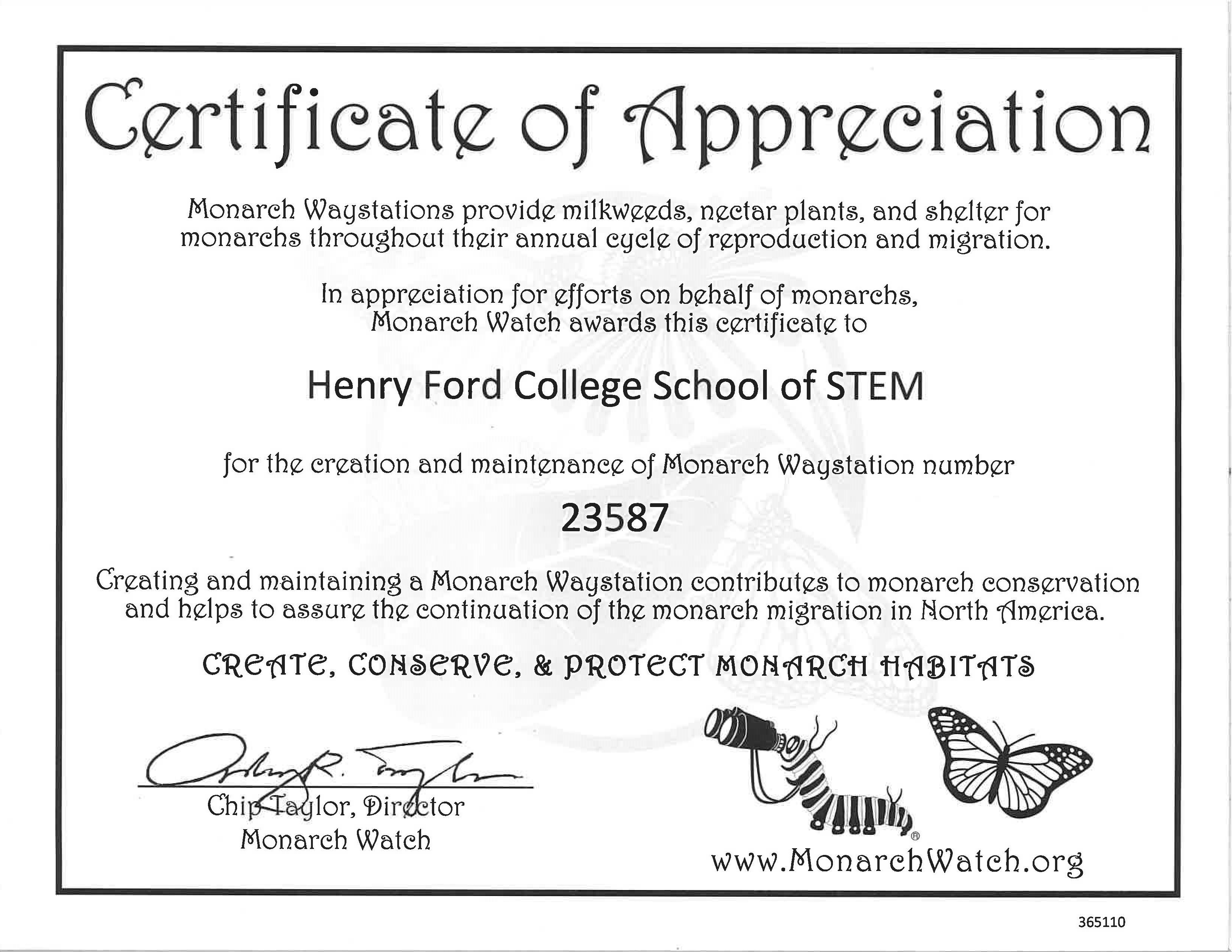A community resource, the Rain and Native Plant Garden earns two certifications

Last month, the HFC Rain and Native Plant Garden achieved Monarch Waystation and Wildlife Habitat certification. These important achievements help our local and national community cohabitate with surrounding pollinators and wildlife.
What is the Rain and Native Plant Garden?
The HFC Rain and Native Plant Garden was planted in 2012, along with a green roof, during Science (J Building) renovations. Roughly 1,000 square feet, it serves as an outdoor biology classroom, a pollinator/bird/wildlife habitat, a water runoff abatement/air purification system, and a community education and service learning resource.
The garden is maintained by volunteers. Maintenance requires constant planting of native plants and removal of invasive species. The HFC Biology Department and the HFC School of Science, Technology, Engineering, and Mathematics (STEM) are proud to have such a wonderful resource and representation of HFC’s commitment to environmental education and stewardship at our disposal.
Monarch butterfly
Monarchs are a species of butterfly that migrates as far south as Mexico and as far north as Canada each year. Monarch butterflies lay their eggs on a specific plant called milkweed. There are many varieties of milkweed. Caterpillars eat the leaves of milkweed, then form a cocoon, and eventually emerge as butterflies.
Adult monarchs rely on a variety of flowering nectar plants for food. To become a certified waystation through the non-profit Monarch Watch, an area needs a specific density of both milkweed and nectar plants.
Each year, monarch butterflies return to where they hatched to lay eggs and complete their life cycles. Waystations are important not only so monarch butterflies can lay their eggs, but also so they have opportunities to feed and rest during their long migrations. Many of the plants that support monarch butterflies also support other pollinators, such as bees, hummingbirds, and other butterflies. Without pollinators and their habitats, many of our fruits and flowers would go extinct.
Certified Wildlife Habitat
To become a certified wildlife habitat under the National Wildlife Federation, an area must meet a number of qualifications related to food, water, shelter, places to raise young, and sustainable management practices. Wildlife habitats within urban settings are especially important. Our garden contains a wide variety of native plants needed to support specific native birds and wildlife. In urban areas such as Dearborn, without assistance, birds and other animals would face threats to their very existence.
Getting involved with the Rain and Native Plant Garden
To become a volunteer or support the garden, please contact greenideas@hfcc.edu. Special thanks to biology adjuncts Marija Andrijonas and Emily Nietering for their countless volunteer hours, both weeding and advising on the continuing maintenance of the garden.



